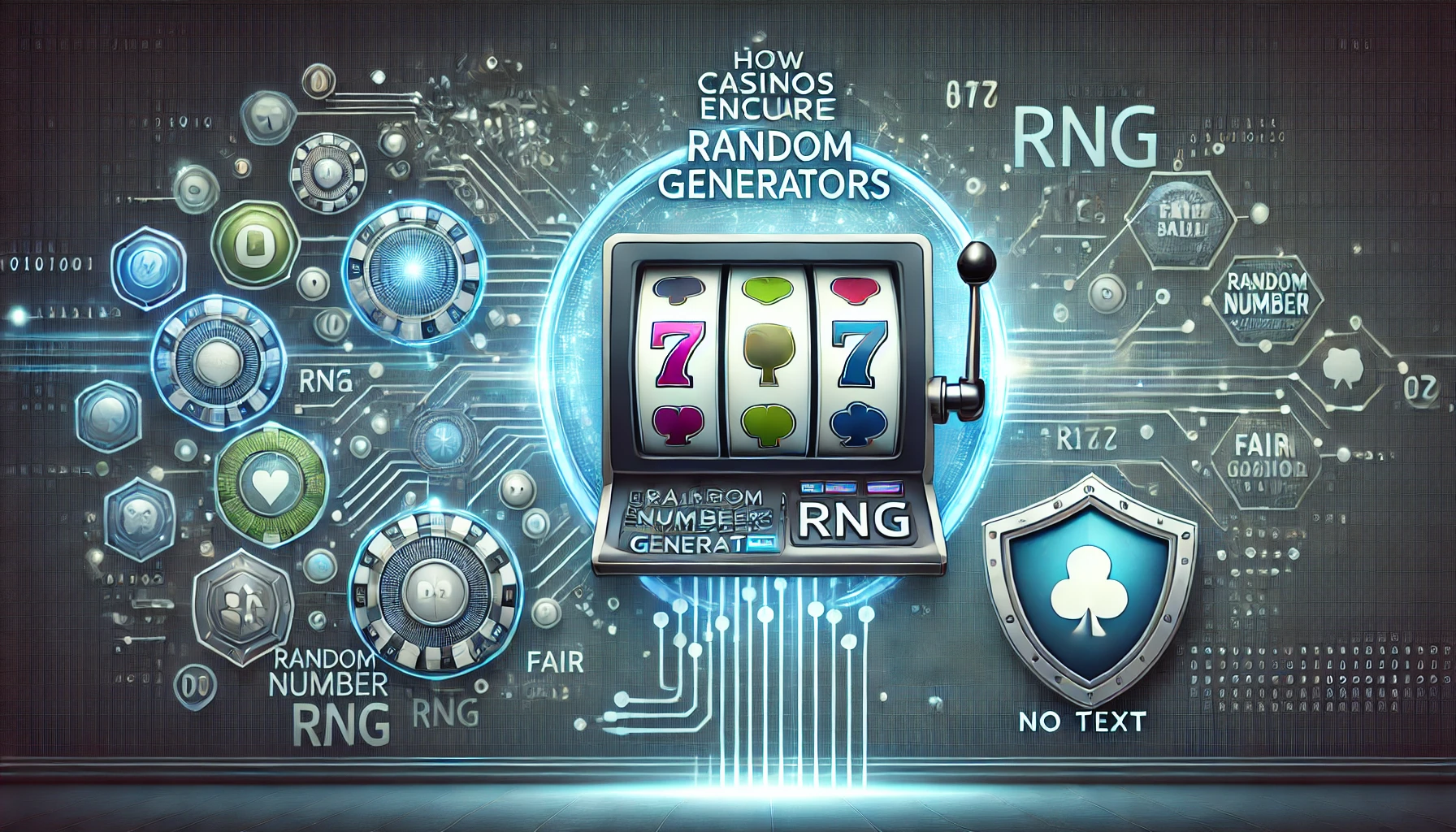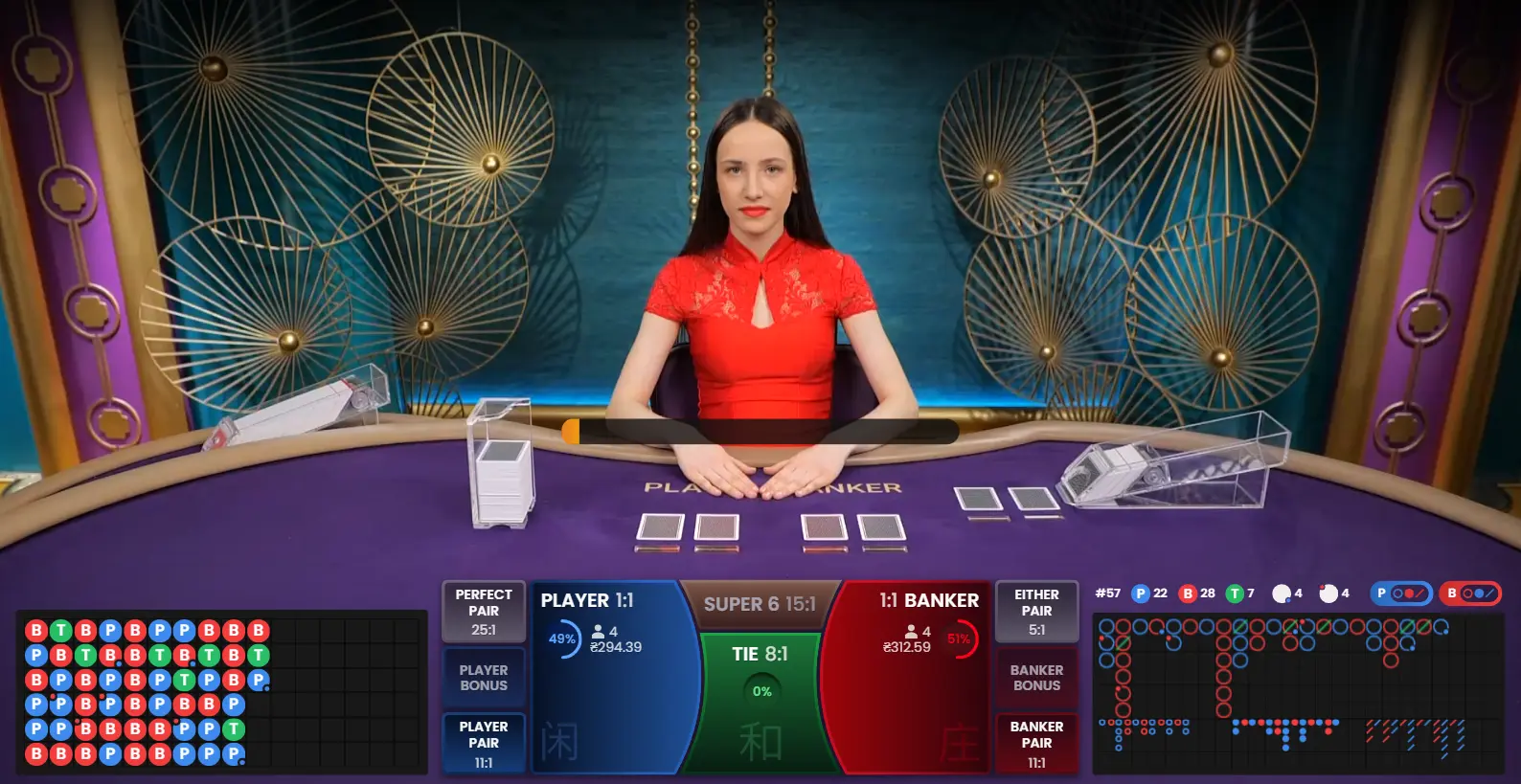
Introduction
Fair play is the foundation of trust in the gambling industry. Whether you’re spinning the reels on a slot machine or playing a hand of online blackjack, players need to know that the games are fair and unbiased. At the core of this fairness lies the Random Number Generator (RNG)—the technology that ensures every game outcome is truly random. But how exactly do casinos implement RNGs, and how can players be sure the system isn’t rigged?
In this article, we’ll explore how casinos—both online and land-based—use RNGs to guarantee fair play and maintain player trust.
1. What Is a Random Number Generator (RNG)?
A Random Number Generator (RNG) is a sophisticated algorithm or hardware device designed to produce a continuous stream of random, unpredictable numbers.
Types of RNGs in Casinos
- Pseudo-Random Number Generators (PRNGs):
- Used primarily in online casinos.
- Generate sequences of numbers using complex algorithms and seed values.
- Not truly random but practically unpredictable.
- True Random Number Generators (TRNGs):
- Used in land-based casinos and some online platforms.
- Generate numbers from natural, unpredictable phenomena like atmospheric noise or radioactive decay.
How RNGs Work in Games
- RNGs continuously generate numbers, even when the game isn’t being played.
- When a player clicks “spin” or “deal,” the game instantly selects the latest generated number.
- This number determines the outcome (e.g., reel symbols, card dealt).
Conclusion: RNGs ensure every outcome is random, making it impossible to predict or manipulate results.
2. How RNGs Ensure Fair Play in Casinos
Unbiased Game Outcomes
- Each spin or card dealt is completely independent of previous or future outcomes.
- No pattern or sequence influences the results.
Prevention of Manipulation
- RNGs eliminate human interference in game outcomes.
- Casinos and players alike cannot manipulate the results.
Consistent Payouts Based on RTP
- While RNGs determine random results, each game is designed with a specific Return to Player (RTP) percentage.
- Over millions of plays, the game will statistically pay out according to its programmed RTP.
Fairness in Bonus Features
- RNGs control the activation of bonus rounds, free spins, and progressive jackpots, ensuring that these features trigger randomly.
Conclusion: RNGs are the backbone of fair play, guaranteeing that every game outcome is unpredictable and unbiased.
3. How Casinos Verify RNG Fairness
To maintain trust and comply with gambling regulations, casinos must prove their games are fair. This is done through independent testing and certification.
Third-Party Testing Agencies
Trusted testing labs evaluate and certify casino RNGs to ensure compliance with fair gaming standards.
- eCOGRA (eCommerce Online Gaming Regulation and Assurance): Focuses on online casino fairness and security.
- iTech Labs: Specializes in RNG testing and certification.
- GLI (Gaming Laboratories International): Tests land-based and online gaming systems worldwide.
- TST (Technical Systems Testing): Provides RNG certification and compliance testing.
Regular Audits and Testing
- Casinos undergo regular audits to verify that their RNGs are working correctly.
- Testing includes simulations of millions of game rounds to check for statistical fairness.
Certification Seals
- Certified casinos display seals from testing agencies (e.g., eCOGRA Certified, GLI Approved).
- Players can usually click these seals for verification.
Conclusion: Independent testing ensures that casino RNGs are fair, reliable, and compliant with industry standards.
4. RNGs in Online vs. Land-Based Casinos
Online Casinos
- Use PRNGs due to the digital nature of games.
- RNG software is integrated into games to randomize outcomes.
- Regularly tested by independent agencies.
Land-Based Casinos
- Slot machines use hardware-based RNGs (TRNGs).
- RNG chips continuously produce random numbers that determine the symbols on the reels.
- Physical games like roulette and blackjack rely on physical randomness (spinning wheels, shuffled cards), but electronic versions use RNGs.
Conclusion: Both online and land-based casinos rely on RNGs, but the technology may differ depending on the gaming platform.
5. How Game Developers Use RNGs
Game developers are responsible for creating fair and entertaining games.
Game Design and RNG Integration
- Developers design games with specific odds and RTP percentages.
- RNGs are programmed to align with the game’s payout structure.
- Bonus features and jackpots are also tied to RNG-generated outcomes.
Progressive Jackpots and RNGs
- RNGs decide when progressive jackpots are triggered.
- Since many jackpots are pooled across multiple games or casinos, RNGs ensure fairness regardless of where the jackpot is won.
Conclusion: Game developers program RNGs to balance fair gameplay with entertainment and payout potential.
6. Common Myths About RNGs and Fairness
Myth 1: “Casinos can rig the RNG to make players lose.”
Fact: RNGs are tested and certified by independent agencies, preventing manipulation.
Myth 2: “Machines get hot or cold.”
Fact: Each spin is random. Past outcomes do not influence future spins.
Myth 3: “Casinos can change the odds remotely.”
Fact: Certified games have fixed RTPs and odds that cannot be altered without regulatory approval.
Conclusion: Myths often arise from misunderstandings about RNGs, but certified RNGs guarantee fairness.
7. How to Ensure You’re Playing Fair Games
1. Play at Licensed and Regulated Casinos
- Choose casinos with licenses from reputable authorities like the Malta Gaming Authority (MGA) or the UK Gambling Commission (UKGC).
2. Look for Certification Seals
- Trusted platforms like Dewakoin display certification badges from eCOGRA, GLI, or iTech Labs.
3. Read Game Information
- Check the game’s RTP and volatility to understand its payout structure.
4. Use Responsible Gaming Tools
- Set deposit limits and play within your means.
Conclusion: Playing on licensed, certified platforms ensures you’re engaging in fair and secure gameplay.
Conclusion
Random Number Generators (RNGs) are the foundation of fair play in both online and land-based casinos. By generating unpredictable and unbiased outcomes, RNGs ensure that every spin, deal, and game round is fair. Certified by independent testing agencies and regulated by licensing authorities, RNGs protect players and maintain the integrity of casino games.
Casinos like Dewakoin prioritize fairness and transparency by using certified RNG technology, giving players peace of mind and a truly random gaming experience.
So, the next time you spin the reels, remember: the game is as fair as technology can make it—leaving the rest to luck!



